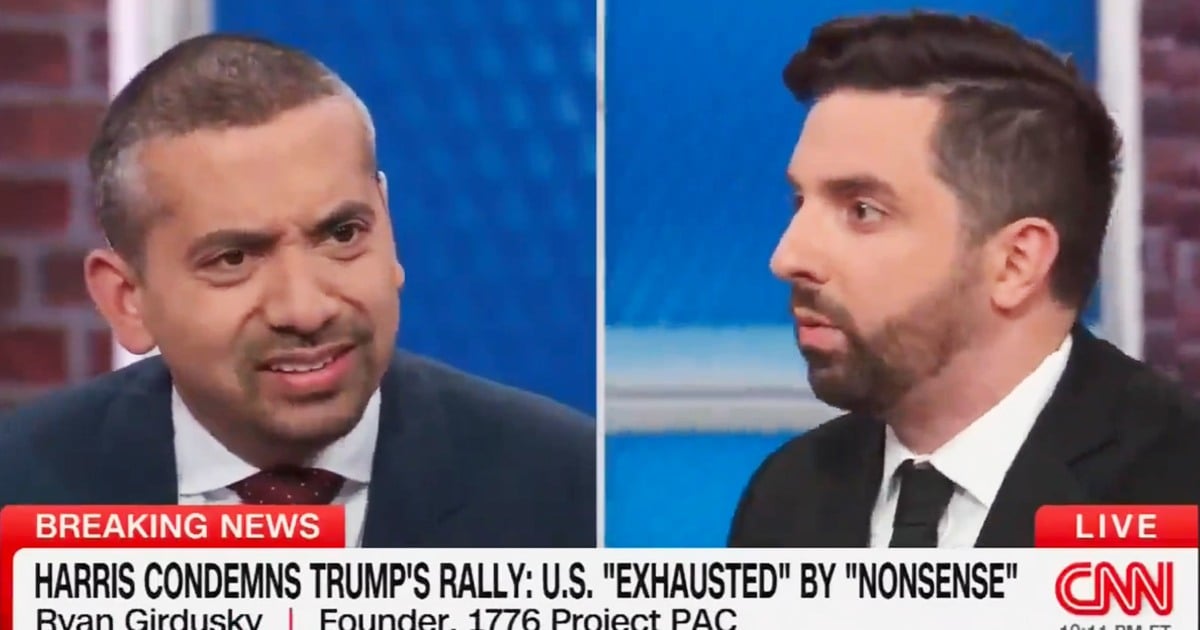Ryan Girdusky clashed with British-American journalist Mehdi Hasan on Monday night.
CNN has banned a conservative commentator from appearing on the network again after he told a Muslim journalist “I hope your beeper doesn’t go off,” an apparent reference to the spate of exploding pagers in Lebanon that killed members of the Hezbollah militant group last month.
Ryan Girdusky made the comment during a heated debate with Mehdi Hasan, a prominent British-American broadcaster and an outspoken critic of Israel’s war in Gaza, on “CNN Newsnight” with host Abby Phillip.
The guests were discussing the racist jokes made by comedian Tony Hinchcliffe, which overshadowed former President Donald Trump’s rally at New York’s Madison Square Garden on Sunday and continue to make headlines two days later.
As the debate turned fractious, Girdusky and Hasan sparred over whether the latter had been labeled an anti-Semite. “I’m a supporter of the Palestinians, I’m used to it,” Hasan said.
Girdusky replied: “Well I hope your beeper doesn’t go off.”



There’s no risk of Putin being at a random grocery store or hospital so your hypothetical doesn’t tea make sense.
That doesn’t answer the question. Let me rephrase to be more direct.
What do you believe makes for acceptable and unacceptable civilian casualties (e.g. children) in urban warfare and what principles do you draw on to form these beliefs? Please use an example from a side you feel are “the good guys”.
If you’re a pacifist or believe not a single civilian casualty is acceptable, what would your approach be to resolving a conflict where your civilian population is being attacked with rockets/missiles?
According to international law it’s acceptable when you’re being occupied, as is the case with Palestine. Not saying I agree, but the law makes a big distinction for those under apartheid.
Removed by mod